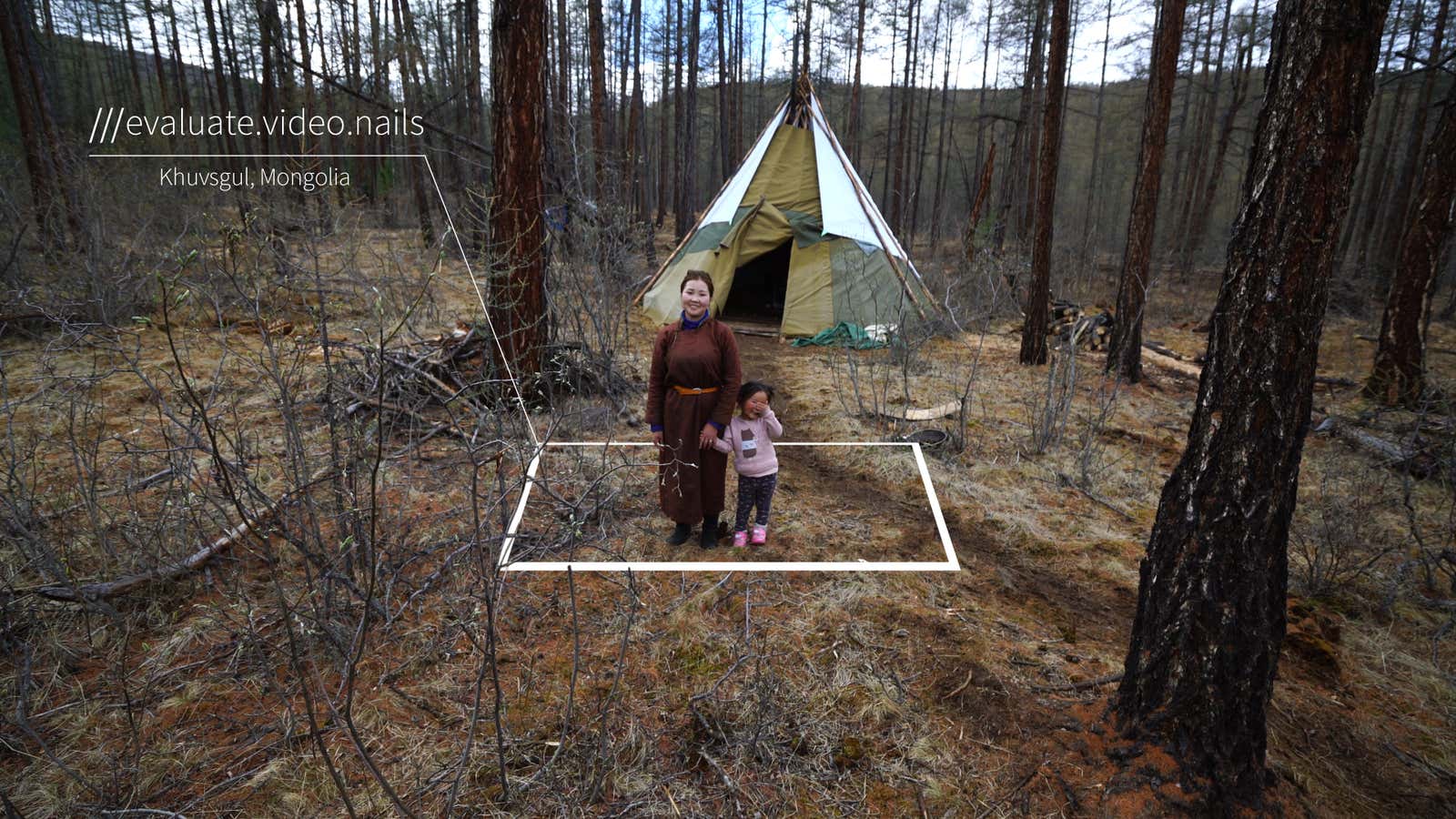Mongolian nomads move every few weeks as part of their traditional lifestyle. Aspiring nomadic travelers like to forsake the idea of a permanent address for the chance to bop around the world with the internet as their main tether to work, family, and community. Now, thanks to a partnership between Airbnb and the London-based tech startup what3words, those two types of nomads can now meet up somewhere on the Mongolian steppe.
what3words was founded in London in 2013. It uses a proprietary algorithm to divide the world into 57 trillion squares. Each square of land, measured at three meters by three meters, gets its own unique, three-word address. In a sense, it’s a “more user-friendly version of GPS”, says chief marketing officer Giles Rhys Jones—one that’ll help you find your secluded hilltop hotel in Santorini, for example, much more easily than punching a street address into Google Maps and hoping for the best.
“A large problem in the world is that it’s is quite badly addressed,” Jones said. “Street addresses don’t cover the world and while GPS coordinates have fantastic cover everywhere, they are harder to use.”
Anyone can download and use the what3words app, and the company also sells code to businesses who want to build their own apps using the concept. what3words is already being organically used by some Airbnb hosts all over the world, says Jones, but the partnership in Mongolia arose from the fact that the country was an earlier adopter of the “super post-code” concept, and began using three-word addresses for its postal system in 2016. It’s also used by banks, taxi, and pizza delivery companies in the nation.
Typically, the community of Dukha reindeer herders featured in the partnership move locations roughly every three weeks to allow for their livestock to graze. By updating their three word address each time they move—and texting their new location to a family member or associate in a city who can then update an Airbnb listing—Jones says more Mongolians living in informal settlements have the opportunity to enter the tourist economy. This is something that the Ministry of Environment and Tourism of Mongolia is keen to see happen; it is working towards the goal of attracting 1 million tourists to the nation.
“A lot of people in Mongolia want to get involved in tourism which means they have to leave a more traditional lifestyle,” Jones said. “This enables is them to continue their traditional lifestyle by updating their address every three weeks.”
It’s worth noting that this is not the first time in recent memory that Airbnb has tried to lure adventure-seeking travelers with a truly one-of-a-kind listing. In August, Airbnb launched a contest to spend a night on the Great Wall of China—only to admit soon after that they didn’t actually have the proper permission to do so. But Jones says part of the partnership has involved working with government of Mongolia to ensure that everyone’s interests and concerns are represented. They’ve also hosted a series of events with Airbnb and what3words inviting existing and prospective hosts to learn about Airbnb.
Adventurous travelers can choose to stay with one of two nomadic groups: Dukha reindeer herders in the Taiga forest and hosts living in the Altai Tavan Bogd National Park. At the former—the “most remote Airbnb on the planet”—guests will be catered to with a private teepee containing two wooden beds, sleeping bags, and an open-fire stove for heating and cooking. They’ll also get full access to the reindeer tribe’s backyard (and presumably the reindeer, too). There is no bathroom, though, and guests are advised that food restrictions will not be catered for, nor do the hosts speak much English.
And getting there, of course, is up to you.
